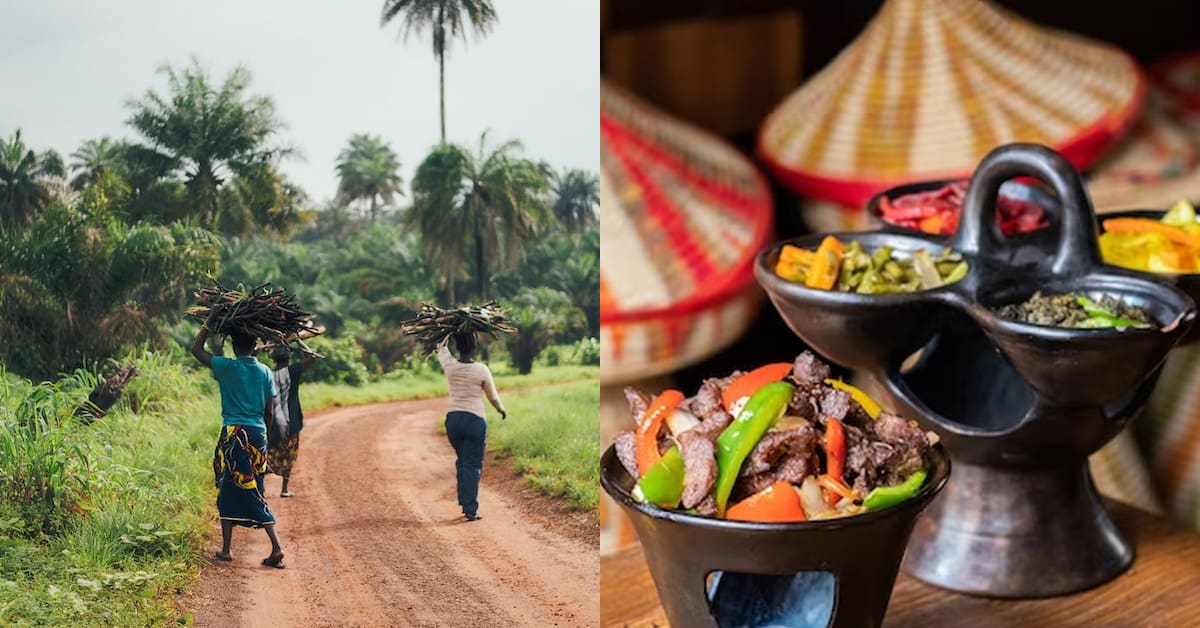Nigerien cuisine is a reflection of the country’s diverse cultural heritage, with influences from West African, Arab, and French culinary traditions. The cuisine is characterized by the use of grains, vegetables, and meats, with a variety of spices and herbs to add flavor. Nigerien food is known for its simplicity, yet it is rich in taste and nutrition.
The country’s cuisine is also heavily influenced by its geography, with the Sahara desert to the north and the fertile Niger River valley to the south. This has led to the development of unique dishes that are specific to different regions of the country.
Nigerien cuisine halal or not?
Is Nigerien food halal?
Most Nigerien food is halal, as the majority of the population is Muslim and follows halal dietary laws.
However, it is always important to check the ingredients and preparation methods of specific dishes to ensure they are halal.
What kind of food do Nigerien eat?
Nigerien cuisine is diverse and influenced by the country’s geography and ethnic groups. Some common dishes include:
- Tuwo Shinkafa: A dish made from rice flour and served with soup or stew.
- Jollof Rice: A popular West African dish made with rice, tomatoes, onions, and spices.
- Fufu: A starchy dish made from cassava, yams, or plantains, often served with soup or stew.
- Djerma Rice: A dish made with rice, tomatoes, onions, and spices, often served with grilled meat or fish.
- Tô: A porridge made from millet or sorghum flour, often served with soup or stew.
- Akara: Deep-fried bean cakes made from black-eyed peas, often served as a snack or breakfast food.
- Zarma Salad: A salad made with tomatoes, onions, cucumbers, and peanuts, often served as a side dish.
- Kilishi: A type of beef jerky that is marinated in spices and dried in the sun.
- Yassa: A dish made with chicken or fish marinated in lemon juice and onions, often served with rice.
- Bissap: A sweet drink made from hibiscus flowers, often served cold.
How can you tell if the food is halal in Niger?
In Niger, halal food is widely available, and it is usually labeled as such. However, if you are unsure, you can ask the restaurant or food vendor if their food is halal. You can look for halal certification from recognized Islamic organizations.
It is also common for Muslims to ask for recommendations from other Muslims or to consult with their local mosque for guidance on where to find halal food.
Is it hard to find halal food in Niger?
According to research, finding halal food in Niger is not difficult. Niger is a predominantly Muslim country, and halal food is widely available in most restaurants and food markets.
However, in some remote areas, it may be challenging to find halal food options. It is always advisable to check with locals or ask for recommendations to ensure that the food is halal.
Is Nigerien food healthy?
Nigerien cuisine is generally considered healthy as it is based on fresh and natural ingredients such as millet, sorghum, vegetables, and lean meats. Nigerien dishes are often low in fat and high in fiber, which can help maintain a healthy digestive system.
However, like any cuisine, the healthiness of Nigerien food depends on the specific ingredients and cooking methods used. Some dishes may be high in salt or sugar, while others may be fried or cooked in oil.
What is Nigerien food similar to?
Nigerien food is similar to other West African cuisines, such as Nigerian, Ghanaian, and Senegalese cuisine. It often includes stews, soups, and rice dishes, as well as grilled or roasted meats and vegetables.
Common ingredients include millet, sorghum, rice, beans, peanuts, and various spices and herbs.
Steps to find halal food in Niger
Here aer some tips to find halal food in Niger:
- Research halal food options in Niger: Start by researching halal food options in Niger. You can use search engines, social media, or ask locals for recommendations.
- Check for halal certification: Once you have identified halal food options, check if they have halal certification. Halal certification ensures that the food is prepared according to Islamic dietary laws.
- Look for halal symbols: Look for halal symbols on food packaging or menus. These symbols indicate that the food is halal.
- Ask the restaurant staff: If you are unsure about the halal status of a particular food item, ask the restaurant staff. They should be able to provide you with information about the ingredients and preparation methods.
- Visit halal markets: Visit halal markets in Niger to find a variety of halal food options. These markets sell halal meat, poultry, and other food items.
- Check online reviews: Check online reviews of halal restaurants and food options in Niger. This will give you an idea of the quality of food and service.
- Consult with a local Islamic center: Consult with a local Islamic center in Niger for recommendations on halal food options. They may also be able to provide you with a list of halal restaurants and markets in the area.

